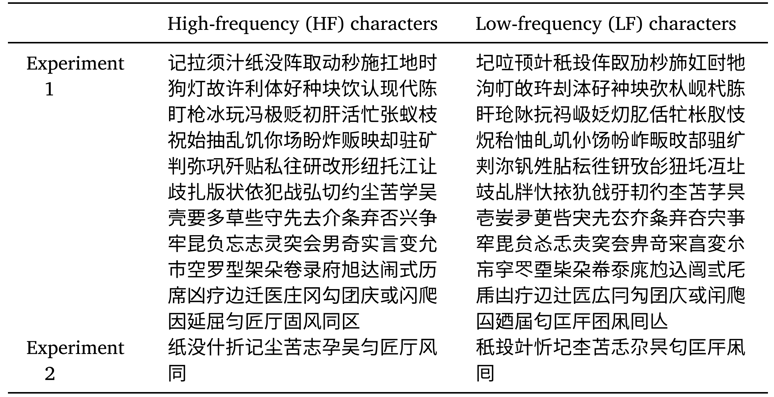Automantic and early lexical processing of Chinese characters
This study investigates whether there is rapid and automatic lexical processing of Chinese characters by recording ERPs. High-frequency (HF) characters and orthographically similar low-frequency (LF) characters were pseudo-randomly presented to proficient Chinese readers. The color of half of the characters was blue and the color of the other half was black. In the color decision task, participants were asked to determine the color of each character. In the lexical recognition task, participants were asked to report whether s/he knew each character (the LF characters in this study were very rare characters which were usually not recognized by proficient Chinese readers). In both tasks, the N170 elicited by HF characters peaked earlier than the N170 elicited by LF characters in the right parieto-occipital area (PO8), and the ERPs to HF characters diverged from the ERPs to LF characters around 210–222 ms after the stimulus onset. These results reflected the rapid and automatic lexical processing of Chinese characters. Source analysis results suggested that the left and the right occipitotemporal cortices and the right visual cortexwere the neural origins of the early lexical processing of Chinese characters, and the peak activation was in the right visual cortex.
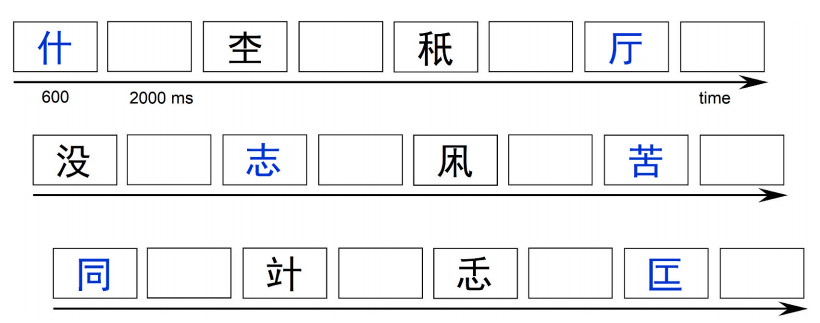

Experimental Procedure
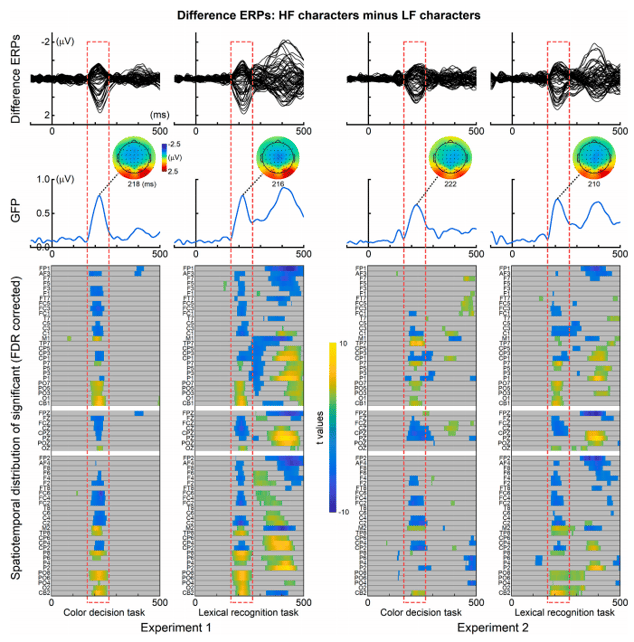

Difference ERPs between HF and LF characters
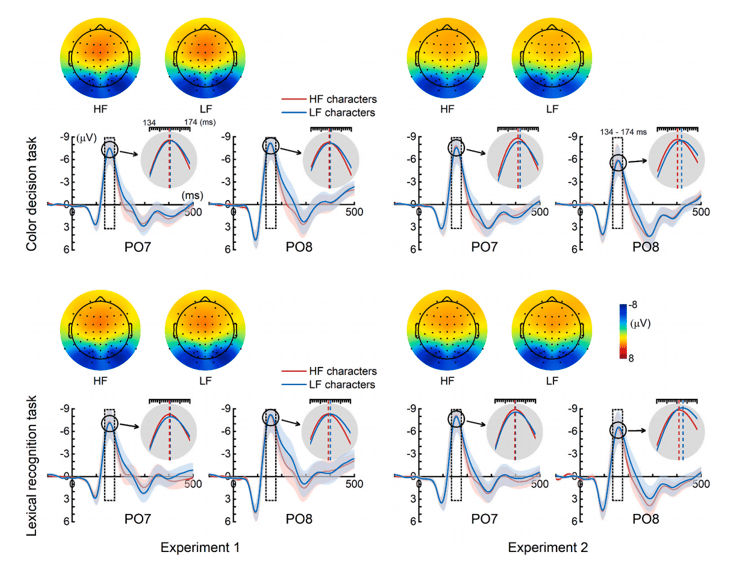

N170 difference between HF and LF characters
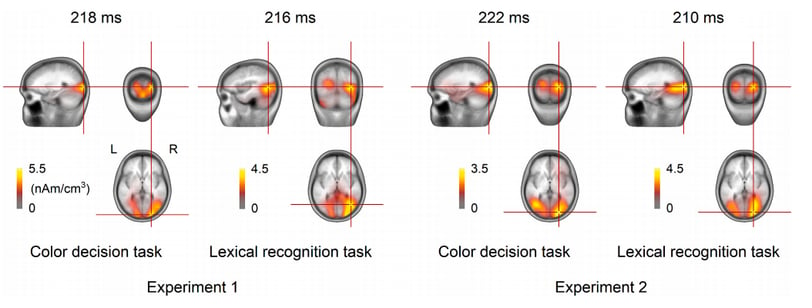

Source analysis results
